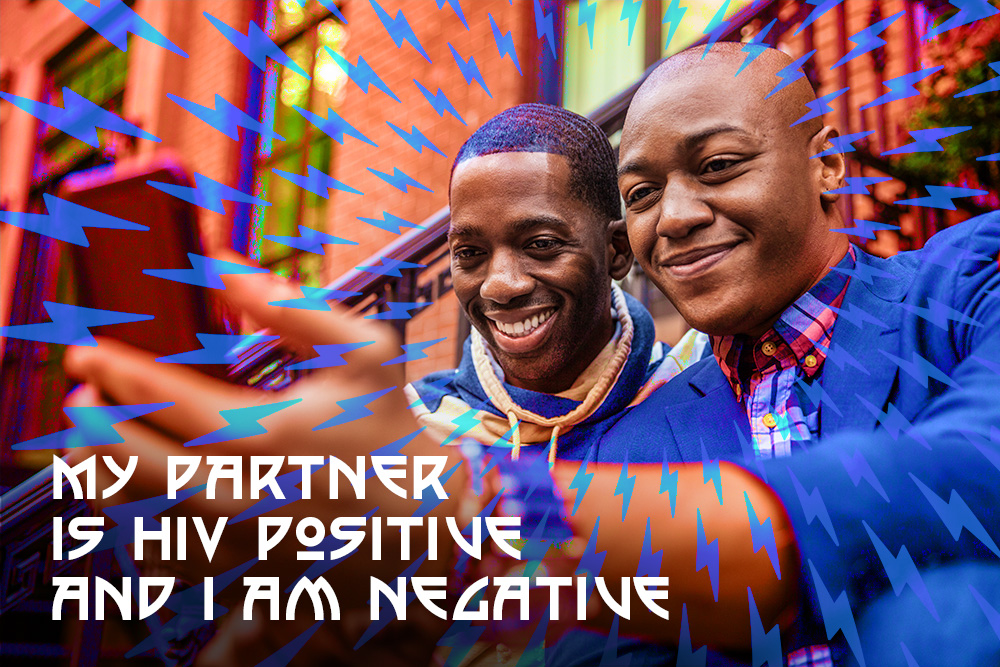
By: Jennifer McMillen Smith, LISW-S, HIV Social Worker at MetroHealth Medical Center and medically reviewed by Ann K. Avery, MD, Infectious Disease Physician at MetroHealth Medical Center
First of all, well done for getting tested. You’ve done the right thing, you superhero. 💪🏾
So many feelings
If you’re feeling overwhelmed, you’re not alone. Fear, frustration and even hopelessness are all completely normal reactions. 💖
So, take some time to process this news in your way. Some people will feel the rush of adrenaline and want to run, scream, and cry until they can’t anymore 🏃🏾, others might shut down and want to work through their emotions privately. A great way to get your feelings out is to write them down; be it in a journal or on a scrap of paper. ✍🏾 It can be helpful to release all the emotions that are weighing on you right now and understand your feelings more clearly.

You’ve probably been asked to come back in a few months to get another test and double-check your status. It’s super important that you do this, and there are ways to take care of yourself and minimize exposure risk in the meantime.
How can one partner be HIV positive and one negative?
What’s up with that? 🤔 Well, a lot of it can be down to luck and/or risk factors.
HIV is not necessarily transmitted every time you have sex or share needles. And the chance of getting HIV varies depending on the positive person’s viral load, and the type of exposure. It’s actually very normal for one partner to test positive and the other to be negative, regardless of what kind of protection was used during sex.
But let’s take some time to focus on you, babe.
Practice self-care
You have to take care of yourself during this time ✨. It’s completely normal to feel all kinds of feelings. Spiraling into endless what-ifs and I-should-haves is a natural part of working through your emotions.
Help yourself and your partner by loving yourself. Take the time to sleep 😴, eat well, get some exercise 🚴🏾, and seek support. Asking for help is crucial to moving forward.

Can I stay with my partner?
Absolutely! Like, 💯% yes. There are many people who stay in long-term relationships with positive partners. While there is no cure for HIV, there are incredibly effective ways to protect both you and your partner. Some of these are:
- Condoms: If used correctly, a condom allows you to have safe anal or vaginal sex. Use a water-based or silicone lubricant to keep the condom from slipping off or breaking.
- PrEP: A preventative, once-daily oral medication that stops HIV from infecting your cells. Your doctor can prescribe PrEP for you and it will lessen the risk of spreading the virus through sex by 99%.
- PEP: An oral medication that you can take after sex if you feel you have been at risk of exposure to HIV. It is only effective if taken within 72 hours of being exposed.
Just one of these tools can make having a relationship with an HIV-positive partner incredibly safe, but you may want to combine a few for better protection.

Read more: How to talk to your doctor about getting on PrEP
Undetectable = Untransmittable (U=U)
Encourage your partner to take their HIV medication so that they can get their viral load (amount of HIV in their blood) down to undetectable. Having an undetectable viral load means they cannot sexually transmit the virus to others.
Doctors typically look to ensure viral load has been persistently suppressed for three consecutive months. After that, they can confidently say your partner is not at risk of transmitting the virus.
The beautiful thing is, once your partner’s HIV treatment is suppressing the virus, you no longer have to take PrEP to have sex 🎉. How amazing is that? You may want to continue to use condoms to prevent other STIs if you and/or your partner have sex with other people. 💖
So how do I stay safe… before viral load suppression?
Good question, and you’re not the only one worried about this. There are some common misconceptions around how HIV spreads that you should know about.
Here’s a few ways your partner CANNOT 🚫 spread HIV to you:
- Crying and Hugging: The emotional rollercoaster you are on will probably involve some tears and hopefully lots of hugs. HIV cannot be spread through hugs, tears, or sweat.
- Everyday tasks: HIV cannot be spread by sharing food 🍔, the same toilet or a toothbrush. In fact, HIV does not live more than a few seconds outside the human body.
- Kissing: You and your partner can absolutely kiss 💋, HIV cannot be spread through saliva.
The truth is, physical intimacy is important. 🧑🤝🧑 So while your partner might be worried about passing the virus to you, acts like eating together and kissing are crucial to a healthy relationship.

Your partner may experience unpleasant side effects on their body from either HIV or medication. They may feel that they are no longer desirable, and they will likely need patience, kindness, and time. One way to help them might be to suggest a support group, which we have a guide for here.
At the end of the day, honest communication is key 🔑. You can both absolutely make it through this tough time, and come out at the other end stronger, closer, and deeply in love.
You’ve got this. 💪🏾
Come join our private, stigma-free, supportive community.
Health management tools with medication & appointment reminders.
Social networking in a community conversation & private chats.
